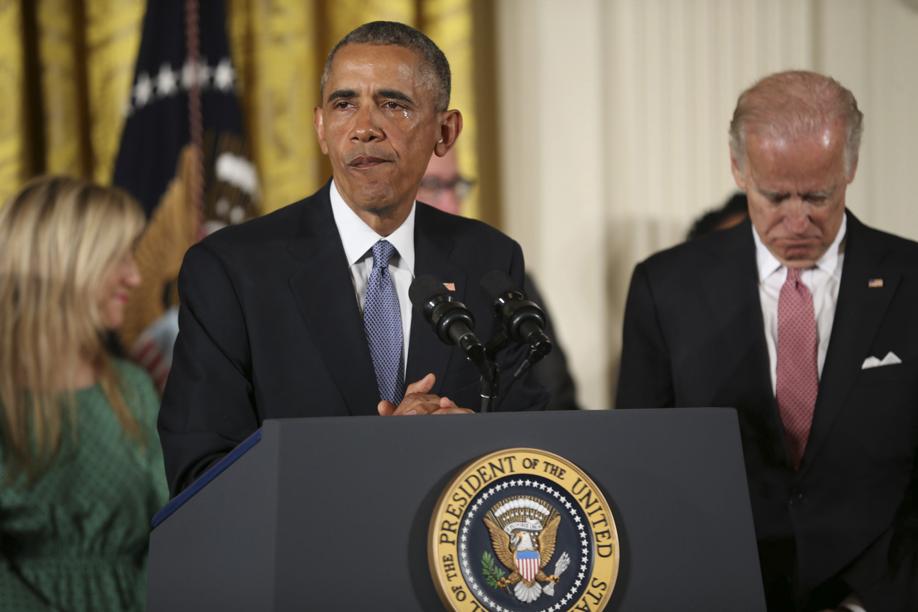
WASHINGTON — The centerpiece of a plan for stemming gun violence that President Obama announced last month largely amounts to this: an updated Web page and 10,000 pamphlets that federal agents will give out at gun shows.
In a tearful display of anger and sadness in the White House, Obama ordered steps intended to limit gun violence and vowed to clamp down on what he called widespread evasion of a federal law requiring gun dealers to obtain licenses.
But few concrete actions have been put in motion by law enforcement agencies to aggressively carry out the gun dealer initiative.
Administration officials said they have no specific plans to increase investigations, arrests, or prosecutions of gun sellers who do not comply with the law. No task forces have been assembled. No agents or prosecutors have been specifically reassigned to such cases. And no funding has been reallocated.
It’s a reminder of the limits of Obama’s executive authority, even as he repeatedly asserts the power of the Oval Office to get things done amid inaction by a Republican Congress.
The National Rifle Association, which fights anything it perceives as a threat to gun rights, has not sued to block Obama, and pro-gun groups profess little reason for concern. “Nothing from what we can see has changed,’’ said Mike Bazinet, a spokesman for the National Shooting Sports Foundation, an industry group.
Administration officials say that with Congress unwilling to act, the White House plan goes as far as Obama can to keep guns out of the hands of criminals and the mentally ill.
“The actions the president announced last month represent the maximum the administration can do under the current law,’’ said Eric Schultz, deputy White House press secretary, “namely increasing mental health treatment and reporting, improving public safety, managing the future of gun safety technology, and of course, enhancing the background check system.’’
For Obama, the announcement of new gun measures gave him a chance to demonstrate the “fierce urgency’’ to respond to mass shootings. Attorney General Loretta E. Lynch told reporters the government was “ramping up our enforcement efforts, particularly online’’ and “will be looking’’ for unlicensed gun dealers.
But turning political promises into action is often difficult in the final year of a presidency, especially in the face of partisan opposition in Congress. The president’s attempts to sidestep lawmakers on immigration have been tied in court, and he faces fights on executive orders to expand gay rights, establish a minimum wage for federal contractors, and combat climate change.
The most visible sign of the president’s initiative to license more gun dealers is the printing of 10,000 pamphlets clarifying what qualifies a gun seller as a dealer. Officials say they hope the “education campaign’’ will prompt more sellers to register as dealers, who then must conduct background checks.
The new guidance says there is no “bright line’’ for determining whether someone should register but a number of factors — such as selling even a small number of new firearms in their original packaging, making a profit, and selling regularly at gun shows or online — could qualify.
Sally Quillian Yates, deputy attorney general, said the efforts should eventually lead to more successful prosecutions of unregistered gun dealers who are flouting the law.
But gun control advocates say they want more than just notification. Jonas Oransky, chief counsel at Everytown for Gun Safety, said the Bureau of Alcohol, Tobacco, Firearms and Explosives should not expect that arrests and prosecutions will happen “without extra energy behind it by them,’’ but added, “We’re giving them some time to figure out how best to do this.’’
White House officials said it was too early to judge the effect of the president’s measures. And they said the effort to register more gun dealers was just one piece of the larger set of measures the president unveiled. Other elements would tighten rules on gun purchases by corporations and more quickly identify lost and stolen guns. Obama also sought to improve the FBI’s ability to identify prohibited gun buyers by hiring more background check examiners and by collecting more criminal and mental health information from states.
But a number of the elements Obama took credit for last month were underway before he directed the administration to develop new gun measures. The FBI, for example, has received funding for an additional 230 examiners in the next two years to handle the growing load of background check requests.
The bulk of the new responsibilities outlined by Obama will fall to the ATF, which has suffered from chronic underfunding and understaffing, years of scandals, and distrust from Republicans and gun rights groups. Obama plans to request tens of millions of dollars for additional ATF agents.



